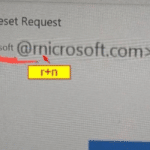Look, here's a real question: Do you actually know how secure your business is from cyber threats?
Cyber attacks aren't just something you read about - they're happening every single day. The cybersecurity battlefield is constantly shifting as attackers create increasingly advanced techniques to breach your defences and exploit vulnerabilities in your systems.
If you're honest, you probably feel like you're always playing catch-up. Guess what? So is everyone else.
Vulnerability assessment isn't just corporate jargon; it's about knowing exactly where your weaknesses lie before someone else finds out the hard way. For UK businesses, especially, understanding your security vulnerabilities has never been more critical.
Let's cut through the noise and get to what actually matters for your business security.
A solid vulnerability assessment helps identify vulnerabilities in your systems, giving you a clear roadmap to fix them before cybercriminals even get a chance. This proactive approach to security is what separates resilient organisations from vulnerable ones.
According to the National Cyber Security Centre (NCSC):
Many organisations use these terms interchangeably, but they represent different approaches to security testing:
This process involves systematic scanning to identify security vulnerabilities in your systems without actually exploiting them. Think of it as a comprehensive health check for your IT infrastructure.
A pen test goes further by actively attempting to exploit the vulnerabilities discovered. Ethical hackers use the same tools and techniques as malicious attackers would to simulate real-world cyber threats.
The best security approach combines both: use vulnerability scanning to identify security weaknesses, then employ penetration testing to understand how these vulnerabilities might be exploited in practice.
Depending on your organisation's needs, you might require different types of penetration testing:
Web applications are often primary targets for attackers. Our web application testing identifies vulnerabilities in your customer-facing applications, protecting both your business and your clients.
As more UK businesses migrate to the cloud, new security challenges emerge. Our cloud penetration testing service evaluates the security of your cloud infrastructure against potential breaches.
Sometimes the biggest security vulnerabilities aren't in your systems but in your people. Social engineering penetration testing evaluates how well your team can identify and resist manipulation tactics.

Let's simplify it—think of it as a health check for your IT systems:
At Silver Lining, we don't overcomplicate it. We get in, we find the weak spots, and we help you fix them.
If you're considering a penetration test for your business, here's what our pen testers will do:
Let me put it plainly. Here's stuff our penetration testers find all the time:
These aren't complicated security flaws, but they're incredibly costly ones when exploited.
Professional vulnerability scanning requires sophisticated tools to uncover potential weaknesses:
Our experienced penetration testers combine these tools with their expertise to provide a comprehensive testing approach that goes beyond what automated testing alone can achieve.
Cybercrime isn't just inconvenient - it can cripple your entire business overnight.
Ask yourself, "Can I afford to ignore this?"
Regular penetration testing offers substantial benefits beyond basic security:
Vulnerability assessment and penetration testing are not just best practices—they are often requirements for compliance with several UK and international standards:
Not all testing companies offer the same level of service. When selecting a pen test service for your UK business, consider:
What exactly is the difference between vulnerability assessment and penetration testing?
Easy one. Vulnerability assessment spots weaknesses through systematic scanning. Penetration testing actively exploits them to see how severe the consequences could be if a real hacker were to try. Think of it as the difference between identifying a weak lock and actually picking it to prove it's vulnerable.
How often should my business run vulnerability assessments?
Regularly is key. The NCSC recommends incorporating vulnerability scanning into routine security practices—think quarterly or even monthly. For penetration testing, most security experts recommend at least annual tests, with additional testing after significant system changes.
Won't vulnerability assessments disrupt my business?
Not at all. Our testing services are designed to run without disrupting your daily operations. We keep things slick, efficient, and discreet. Our experienced penetration testers work around your schedule to minimise any potential impact.
What's the difference between ethical hacking and penetration testing?
Ethical hacking is the broader practice of using hacking skills for legitimate security purposes. Penetration testing is a specific, structured application of ethical hacking that follows a defined methodology and scope. All our pen testers are ethical hackers who adhere to strict professional standards.


